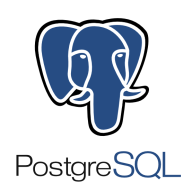

PostgreSQL and MySQL are widely used open-source relational database management systems that compete in the database market. PostgreSQL seems to have the upper hand in terms of advanced functionalities and SQL compliance, while MySQL is noted for its speed and performance, particularly in web applications.
Features: PostgreSQL is known for following SQL standards closely and offers advanced features such as full-text search, GIS capabilities, and extensive support for various programming languages. It excels in scalability and robustness for handling large datasets. MySQL, on the other hand, is celebrated for its speed in web applications and provides flexibility with multiple storage engines, making it a favored choice for small to medium applications.
Room for Improvement: PostgreSQL could enhance its handling of certain SQL operations, such as 'INSERT IGNORE' and add support for unsigned integer data types. It has a reputation for a steeper learning curve. MySQL lacks some features like robust replication and transaction handling, and it faces performance issues with intensive InnoDB use compared to MyISAM, which are areas under development.
Ease of Deployment and Customer Service: Both PostgreSQL and MySQL are versatile in deployment, supporting various environments with increased popularity in cloud settings. PostgreSQL offers community-based support, though it can lack formal customer service. MySQL also benefits from a large community, but additional support might be necessary for enterprise setups. Both rely on external resources for technical support.
Pricing and ROI: PostgreSQL is completely open-source, providing a high ROI due to the absence of licensing fees, appealing to cost-conscious organizations. Costs may arise in training and support. MySQL is also open-source for base deployment, but enterprise features might incur additional expenses. Both solutions present excellent ROI, making them suitable for startups and businesses looking to avoid proprietary software costs.


MySQL is a cost-efficient and scalable relational database management system widely used in web, mobile applications, and academic projects.
MySQL is utilized for backend operations, data analysis, reporting, financial transactions, and ERP databases. It supports deployment on local servers, Cloud, and Kubernetes. Its free, open-source nature along with strong community support make it popular among companies. MySQL's compatibility with multiple platforms and programming languages enhances its appeal. While it remains stable and easy to use, areas such as replication, clustering, and backup require improvement to better serve enterprise applications. Enhanced security, error messages, and monitoring tools are also desired for a better user experience.
What are the most important features of MySQL?In multiple industries, MySQL supports internal applications, billing systems, academic teaching purposes, and ERP databases. Companies leverage MySQL for Cloud and local deployments, ensuring effective data manipulation and backend operations in diverse projects. Its role in financial transactions and reporting further emphasizes its versatility.
PostgreSQL is a versatile and reliable database management system commonly used for web development, data analysis, and building scalable databases.
It offers advanced features like indexing, replication, and transaction management. Users appreciate its flexibility, performance, and ability to handle large amounts of data efficiently. Its robustness, scalability, and support for complex queries make it highly valuable.
Additionally, PostgreSQL's extensibility, flexibility, community support, and frequent updates contribute to its ongoing improvement and stability.
We monitor all Open Source Databases reviews to prevent fraudulent reviews and keep review quality high. We do not post reviews by company employees or direct competitors. We validate each review for authenticity via cross-reference with LinkedIn, and personal follow-up with the reviewer when necessary.